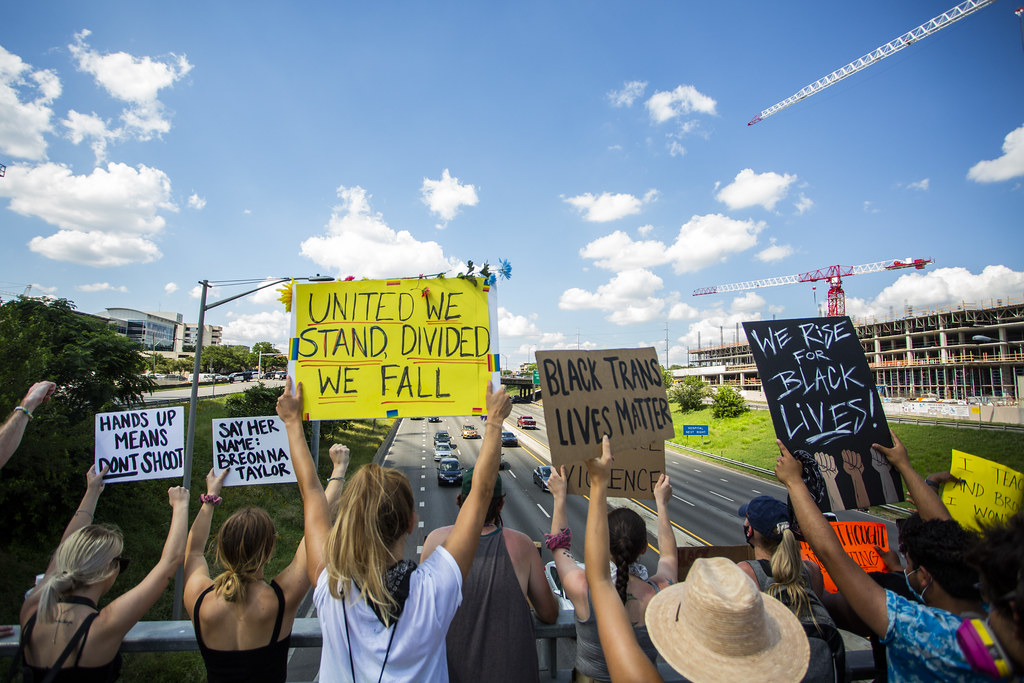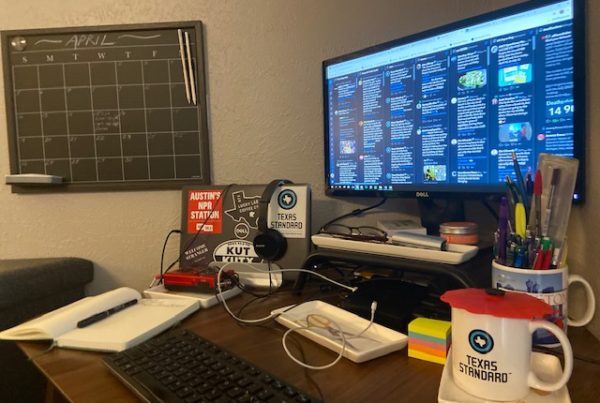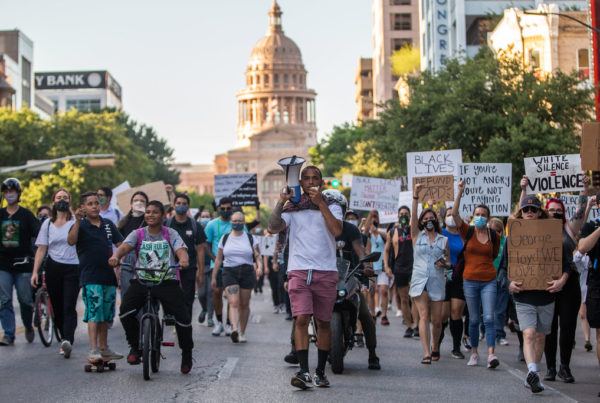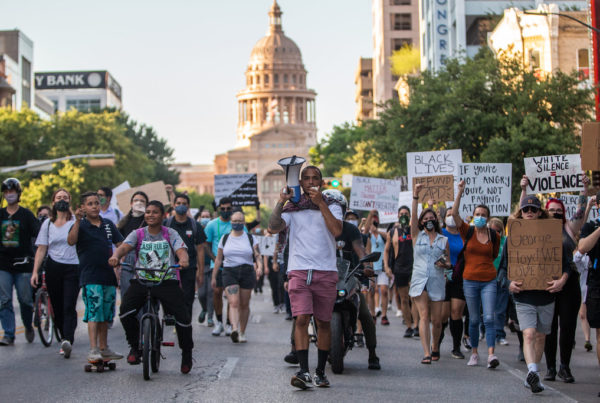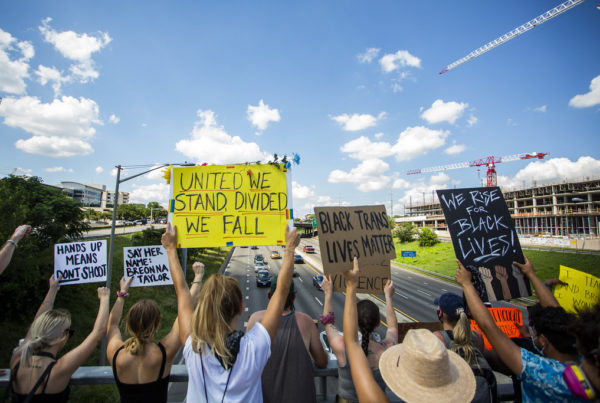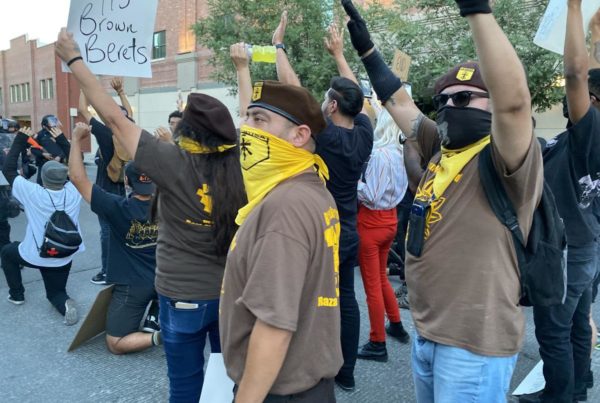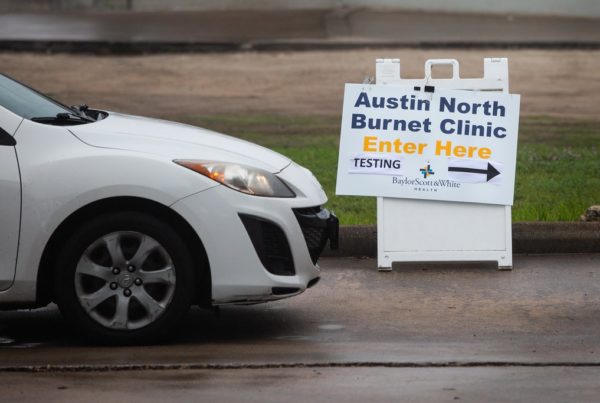Black Lives Matter protests have been occurring all over the country, and the demonstrations have been notable for their participants’ diversity in age and race. The protests have sparked a growing conversation about how white and other non-black people can and should participate – what’s been called being an ally, or allyship.
Ya’Ke Smith is a filmmaker and the first associate dean for diversity equity and inclusion at the Moody College of Communication at the University of Texas at Austin. He recently completed a short film called “Dear Bruh,” and describes it as a eulogy.
“It’s a poem that I wrote probably about five years ago now. I was writing it during the Trayvon Martin, Mike Brown, Eric Garner cases,” Smith told Texas Standard host David Brown, speaking of black men whose deaths spawned protests.
In the film, Smith says he uses images of black men smiling, laughing and dancing with their children to try to rewrite the negative narratives and stereotypes portrayed in media.
The weeks of protests sparked by the death of George Floyd, and the media coverage they receive, have been a double-edged sword, he said.
“I think it’s very positive,” Smith said. “I think that these protests have really opened America’s eyes to an acknowledgement of its original sin. This is not really about police brutality. It’s really about systemic racism and white supremacy.”
But it doesn’t help when the majority of protesters are being blamed for what a small number are doing.
“In some ways it’s trying to cast a negative light on the protest by calling them riots and things like that. Well, in fact, in my mind, that’s completely missing the point of what people are in the streets doing right now,” he said.
Protesters are bringing to light the real experiences that black people and other people of color face at the hands of police, Smith said. So how then to someone who has not had those experiences become a good ally?
First, Smith said, you gotta know your history. It goes beyond this moment.
“Because this dehumanization of black people has been going on forever,” he said.
And if you want to be an ally, don’t make it about yourself.
“I think a lot of times people forget that when you say things like ‘all lives matter,’ what you’re really doing is saying that black life doesn’t matter as much as my life. In many ways, when you think about this whole notion of ‘all lives matter,’ there’s never, ever been a moment in history where white people in this country have felt that their life has not mattered. They’ve always been at the center,” he said.
Smith said white allies should be mindful of the space they’re taking up – don’t take agency away from the group of people who actually need agency given back to them
Another way to be a good ally is to give respect.
“When I talk about dehumanizing someone,”he said, “it’s also a matter of having full respect for them. So for example, think about a name and the ways that name is pronounced. If we don’t give full credence to the ways that a person pronounces their name in many ways, what we’re doing is we’re taking their humanity away from them.”
Smith also advised potential allies to take a look at those around them and really acknowledge them and uplift their voices.
“It’s about making sure that you always see your black colleagues, your black students, black people in general, as humans… These protests are nothing but people who have not had the opportunity to speak, it’s their way of speaking,” he said.
“Being a good ally is helping them speak, not speaking for them, not leading in front of them, not going out and, and wreaking havoc.”
Smith said he sees a lot of non-black protester going out and breaking windows and doing things that are aggravating the situation and putting a negative light on protests.
A real ally listens and reflects.
“It’s about standing alongside, it’s about listening and it’s about letting black people lead you in the ways in which you can help them. But it’s also about you doing some real, real, real hard work and checking your own biases at the door and really understanding this. This country was built on racism… And I think a good ally looks themselves in the mirror and asks themselves the question, ‘how have I acted in a racist way? How have I been impartial to people of color? How have I tried to center my narrative while taking agency away from them? And then what can I do to check all of those sorts of privileges, right. That I have. In order that I can help that demographic of people?'”
That’s why saying things like “all lives matter” and “I don’t see color” are ultimately harmful to a movement that is focused on creating change in a system that has long disenfranchised them.
“That’s a way of saying, wait a minute, we’re all human. And we all have the same experiences… but there are certain experiences that only black people have in this country,” Smith said. “I’m sure you have never been driving in your car and fear that if the police pulled you over that you might be pulled out and killed. I’m sure that you have never thought that if I just go on a run today that I can literally be gunned down by three white vigilantes, whatever they want to call themselves… That’s not a fear that you have. And so when you say things like, ‘I don’t see color’ again, you’re taking that experience away from black people. You’re also diminishing it and saying that it actually does not exist. So not seeing color is not being a good ally.”
Allyship is important in any community where you don’t identify personally, but support those who do, Smith said. He gives an example.
“I’m a black person and I am out being an ally with a person from the LGBTQ community,” he said. “It is not my place to tell them what they should feel, to tell them how they should fight, to tell them how they should react. It is my job to stop, shut up and listen and let them lead me and guide me.”
But most of all it’s not just about saying the words. It’s about doing the work and making concrete changes in your surroundings. Actions speak louder than words and being all talk will get you called out by those who are actually doing the work. Smith explains how this often happens on social media.
“Honestly, it’s about amplifying black voices,” he said. “And I think the backlash is this: when you have an organization who doesn’t have any black people on their executive team, they have no creative directors that are black, there are no showrunners or gatekeepers that are black. And then they put out statements; ‘Black lives matter’… the question really becomes what does that really mean? Because after this moment ends, that statement will fall completely on deaf ears.”
Smith explains that it’s about changing the makeup of corporations or universities to include black people. Because that’s the way to combat systemic racism and white supremacy.
“You get voices that are non-white in the room so that they can actually speak to their communities and you stop speaking for them,” he said. “We thank you for those statements, but we hope that those statements actually lead you to real action. That will cause real systemic change.”


